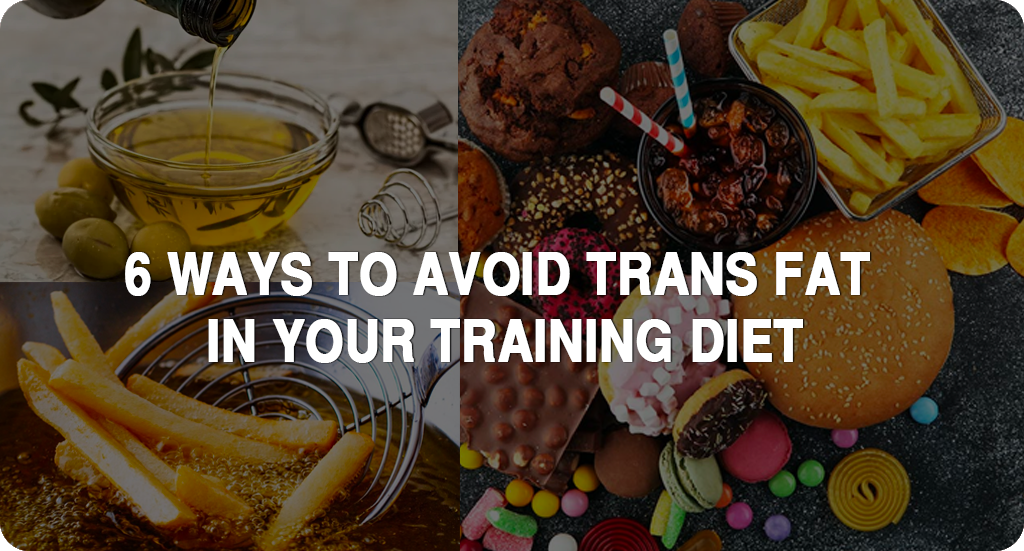6 WAYS TO AVOID TRANS FAT IN YOUR TRAINING DIET
Trans Fats are a form of unsaturated fat that comes in two forms artificial and natural. The natural trans fats in animal products are safe for consumption, but the artificial trans fats need monitoring as they are strongly related to a risk of various health conditions.
They cause obesity, insulin resistance, they tend to damage the inner lining of the blood vessels, increase the LDL (bad) cholesterol in the body and also increase the risk of certain cancers. Therefore, it is very important to avoid products with trans fats in them. Trans fats cause inflammation which is a cause for chronic problems like arthritis, diabetes, metabolic syndrome and heart issues.
How to avoid Trans fats in your training diet:
- Food manufacturers can label products trans fat-free if the amount of trans fats is less than 5% by weight. So it becomes very important for a smart consumer to read nutrition labels properly.
- Reduce the number of processed foods in your diet and avoid food items if the ingredient list has partially hydrogenated items.
- Stay away from hydrogenated vegetable oils as they are the major contributing factor of trans fats in your diet along with other processed food options. These oils have a long shelf life and are cheap to manufacture. Apart from hydrogenated vegetable oils, all processed foods contain trans fats.
- Snacks that come in a packet have high amounts of hydrogenated oils so opting for a trans-fat-free option like bananas, carrot sticks, mixed nuts, plain yoghurt, apples, etc. prevent us from developing risk factors for lifestyle conditions and diseases.
- Fried foods that are cooked in processed vegetable oils also have trans fats present in them. When the oil is reused for frying purposes the trans fat content increases.
- Heart-healthy vegetable oils like olive oil and avocado oil help reduce inflammation and have antioxidants along with essential fatty acids.
In conclusion, to keep up with your health and fitness try to avoid consumption of hydrogenated oils, highly processed and packaged foods, and check the food labels of the packaged goods that you buy













Comments
No comment yet.